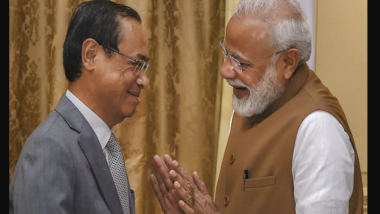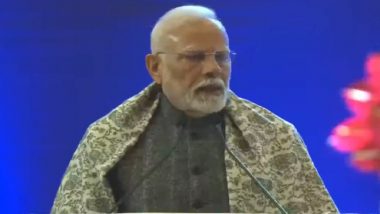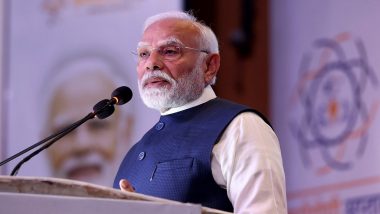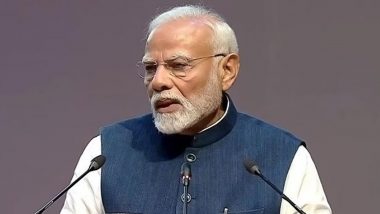New Delhi, March 18: Former Chief Justice of India (CJI) Ranjan Gogoi will take oath as a lawmaker of the Rajya Sabha at 11 am on Thursday. The ex-head of apex court was nominated to the Parliament's Upper House by President Ram Nath Kovind. His decision to accept the nomination had drawn flak from several quarters, including his former colleagues who feared a dip in people's "faith" towards the judiciary.
Gogoi, during his tenure as the CJI between October 3, 2018 and November 17, 2019, presided over the top court benches which issued the verdict in key cases including Ayodhya land dispute, plea seeking probe into the death of Justice B Loya and petition seeking probe into the Rafale jets deal, among others. India's Institutions Under Threat, Dangerous Process Underway in Country: Ex-VP Hamid Ansari.
After reports confirmed on Monday that Gogoi has accepted his nomination to the Rajya Sabha, former SC Judge and his contemporary Justice Kurian Joseph said his decision is "shocking".
"I am surprised as to how Justice Ranjan Gogoi who once exhibited such courage of conviction to uphold the independence of the judiciary, has compromised the noble principles on the independence and impartiality of the judiciary," Joseph said.
Gogoi also drew flak from former Chief Justice of Delhi High Court AP Shah. "I have always been of the opinion that judges should not accept post-retirement jobs at all. Judges must be strong enough to resist any temptation of compromising their independence that is led by anyone in authority that can demean the independence of judiciary," Shah was reported as saying by news agency PTI.
In his defence, the ex-CJI told mediapersons on Tuesday that his decision was aimed at improving cohesion between the judiciary and the legislature. "I have accepted the offer of the nomination to the Rajya Sabha because of strong conviction that the legislature and judiciary must, at some point of time, work together for nation-building," Gogoi was reported as saying.
Reacting to his remarks, Hyderabad lawmaker Asaduddin Owaisi said cohesion must be deliberately avoided between the legislature, judiciary and the executive. "Article 50 of Constitution encourages steps that separate the judiciary from executive and with good reason. Cohesion is not something that parliament needs with the judiciary, it needs separation, just like with the executive," the AIMIM chief added.
(The above story first appeared on LatestLY on Mar 18, 2020 08:40 PM IST. For more news and updates on politics, world, sports, entertainment and lifestyle, log on to our website latestly.com).













 Quickly
Quickly




















